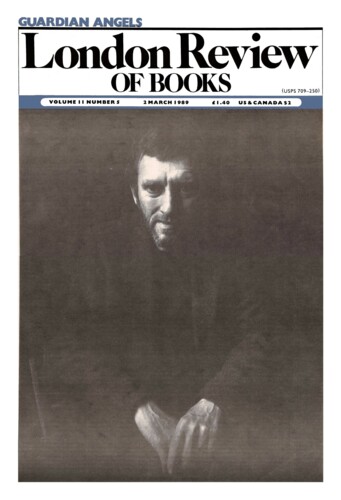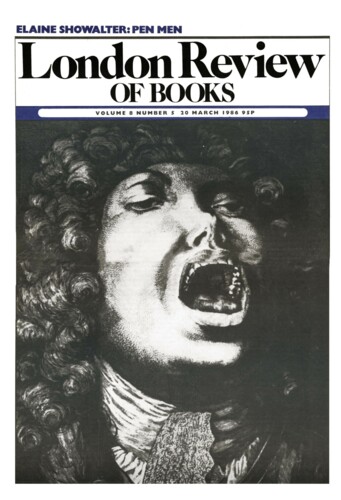Whiggeries
J.H. Burns, 2 March 1989
It is doubly appropriate that Professor Burrow’s 1985 Carlyle Lectures were published in 1988, for the year that marked the tercentenary of the revolution whose principles became the touchstone of Whig orthodoxy also turned out to be the year in which, after well over a century, the term ‘Liberal’ lost its separate identity in our political vocabulary, having become merged in a composite destined to be known for short as ‘Democrats’. There is a fine irony in this. Democrats, after all, is precisely what many Liberals in the past were concerned to maintain that they were not. Professor Burrow’s concern is with political thought rather than with the dusty confrontations of the party arena; yet there is a sense in which the point just made is relevant to his theme. That theme is, centrally, that our understanding of liberal thinking in England has been distorted by a failure to pay sufficient attention to its 18th-century antecedents. This is to invite us to take seriously the Whig roots of the Liberal family tree.


